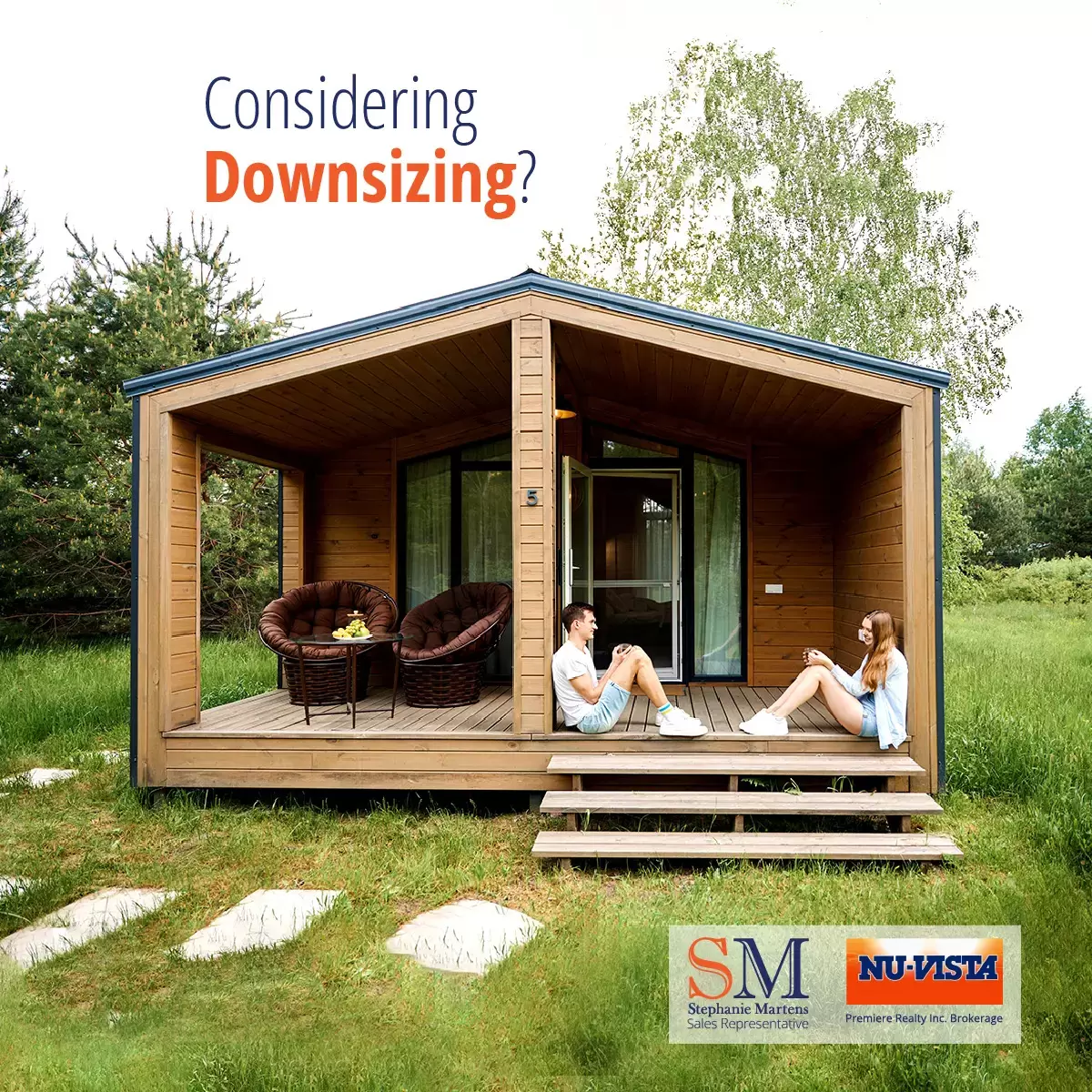
Downsizing has become an increasingly popular choice for people at various stages of life. Whether you are considering downsizing because you’re empty nesters looking to simplify your living situation, or you just want to embrace a more minimalist lifestyle, downsizing can offer a fresh start. The key to making the right choice is understanding the pros and cons of different types of homes that can suit your needs.
Let’s break down some of the most common options for downsizing: apartments, condos, townhomes, and tiny homes.
Apartments: Low Maintenance, High Convenience
PROS
Ease of Maintenance: One of the biggest perks of living in an apartment is that maintenance is usually handled for you. Issues like plumbing, heating, or landscaping are taken care of by the property management, saving you both time and money.
Amenities: Many apartment buildings come with built-in amenities like gyms, pools, laundry facilities, and even shared social spaces, making it a convenient option for those who want more with less upkeep.
Flexible Lease Terms: Renting an apartment gives you flexibility if you’re unsure about a long-term commitment, allowing you to test out your downsized living situation without being tied to a mortgage.
CONS
Lack of Privacy: Apartments, especially in large complexes, can feel cramped and less private. Thin walls and close neighbors might mean you’ll have to adjust to a bit more noise and less personal space.
Limited Customization: While you can decorate your apartment, structural changes are typically off-limits, so it may not feel quite as “homey” as a place you own.
Condos: Ownership with Perks
PROS
Ownership Benefits: If you’re ready to own your home but still want to downsize, a condo offers a good balance. You own the property, meaning you can build equity over time while still having fewer responsibilities than a traditional house.
Shared Amenities: Like apartments, many condos offer shared amenities such as pools, gyms, and even common areas for social gatherings, but you may find that condos have a more residential feel and fewer people compared to apartment buildings.
Low Maintenance: Similar to apartments, the condo association typically handles exterior maintenance, landscaping, and other shared property responsibilities.
CONS
Condo Fees: While the maintenance is taken care of, you’ll be paying condo fees, which can add a significant monthly cost. These fees cover maintenance of the building and shared spaces but can be expensive depending on the condo’s location and amenities.
Rules and Regulations: Condos often come with strict rules about what you can and can’t do with your property. For example, modifications to your unit (like adding a new deck or painting your door a bold color) may be prohibited.
Townhomes: A Blend of Privacy and Community
PROS
More Space: Townhomes generally offer more square footage than apartments or condos, often with multiple floors and a private garage, providing more of a house-like experience while still being easier to maintain than a single-family home.
Private Yard: Many townhomes come with a small front or backyard, which gives you some outdoor space without the extensive upkeep required by a single-family home.
Community Feel: Townhomes often reside in neighborhoods with a strong sense of community, which can be a big plus for those looking for a quieter, suburban lifestyle with a bit of social interaction.
CONS
Less Privacy Than a Detached Home: Though townhomes offer more privacy than apartments or condos, they often share walls with neighbors, which can lead to noise and less personal space.
Fees: Similar to condos, townhome communities often have monthly fees to cover common area maintenance and other shared services. These can be a downside if you’re looking to keep costs as low as possible.
Tiny Homes: Simplify Everything
PROS
Extreme Simplicity: The appeal of tiny homes is their minimalist lifestyle. With sizes typically ranging from 100 to 400 square feet, these homes force you to prioritize what’s truly important. Living in a tiny home means you’ll be reducing your possessions, living sustainably, and minimizing your environmental footprint.
Affordability: Tiny homes are often much cheaper than traditional homes, both in terms of the initial investment and ongoing utility costs. If you’re looking to drastically lower your living expenses, a tiny home could be the perfect solution.
Mobility: Some tiny homes are designed to be mobile, allowing you to take your home on the road. This is perfect for those who want to embrace a nomadic lifestyle or simply enjoy the freedom to relocate at will.
CONS
Limited Space: The biggest drawback is, of course, the lack of space. A tiny home offers very little room for anything beyond the basics. If you’re used to larger living spaces, adjusting to such small quarters can be challenging.
Zoning and Regulations: Depending on where you live, there may be zoning laws and building codes that make it difficult to park or set up a tiny home. Some areas may not even allow them at all, so it’s important to do research before making the move.
Lifestyle Change: A tiny home requires a significant shift in how you live. You’ll need to downsize your belongings to fit the space and adjust to a much simpler way of life. While some people thrive in this environment, others may feel cramped or frustrated by the lack of storage and space for personal items.
Which Option Is Right for You?
Downsizing isn’t just about reducing square footage—it’s about creating a living space that aligns with your current lifestyle and priorities. The best choice for downsizing depends on your personal lifestyle, preferences, and goals.
If you’re considering downsizing and looking for help navigating these options give me a call! I’m happy to chat about what might be right for you, and discuss some of these properties coming to market.
Let’s turn your downsizing journey into a new adventure!
Follow along!
